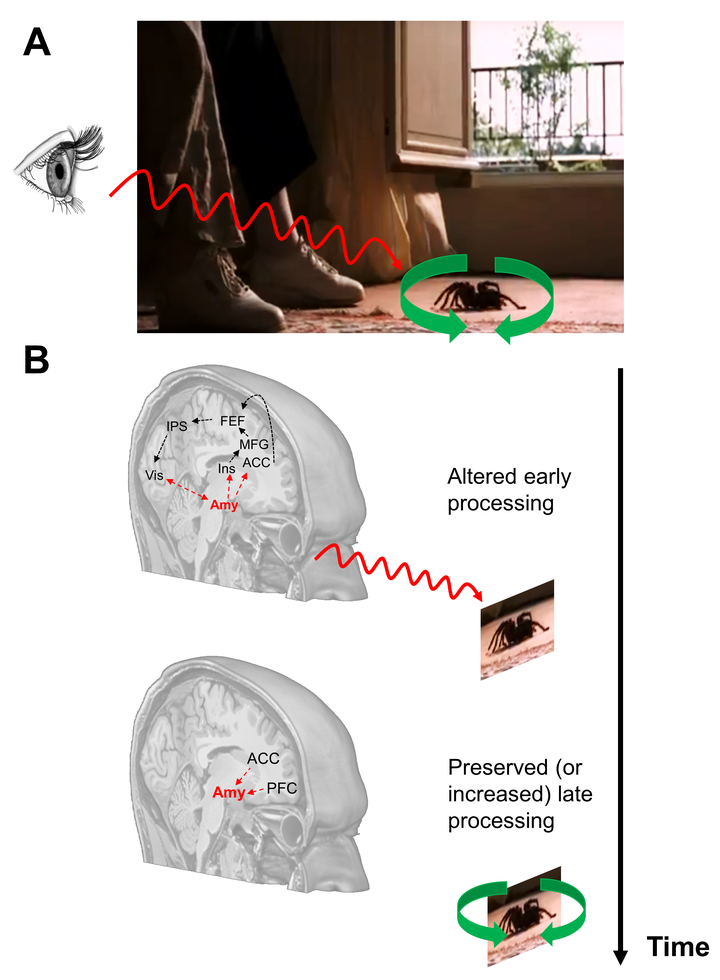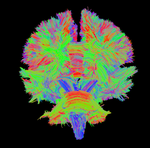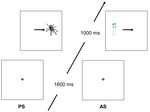Emotional attention in Alzheimer's disease

Alzheimer’s Disease (AD) is a complex neurodegenerative pathology involving large brain alterations and the emergence of cognitive and behavioral symptoms that impair daily life. Even now, AD is difficult to diagnose precisely, notably because of the low-specificity of its main characteristics (i.e., memory symptoms and hippocampal atrophy). The systematic assessment of brain alterations that occur during the first stages of AD showed the existence of amygdala atrophy, which could lead to disruptions in emotional processing.
In this project, we conduct paradigms involving emotional attention, in other words attentional processes directed toward emotional or neutral stimuli, which may be disrupted in patients with amygdala lesions.
We already conducted two eye-tracking paradigms (i.e., eye movements recording) involving visual search and pro-saccade/anti-saccade tasks to get a fine analysis of attentional processes. The results of these two studies suggest that patients with AD present alterations of early emotional attention, which is involved in facilitating orienting toward emotional information.
Using a neuroimaging analysis of structural and functional connectivity, we highlighted alterations in neural networks (including the amygdala) involved in attentional and emotional processes.
Finally, we are currently conducting a neuroimaging study specifically exploring correlations between emotional attention processes and alterations in the corresponding neural network. Information regarding this paradigm can be found here.



